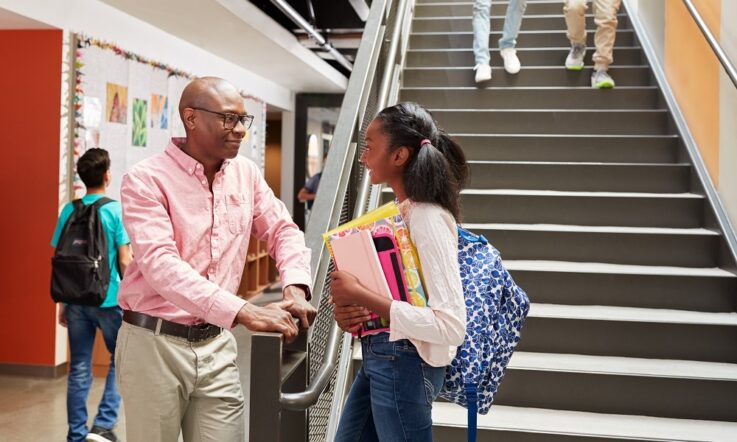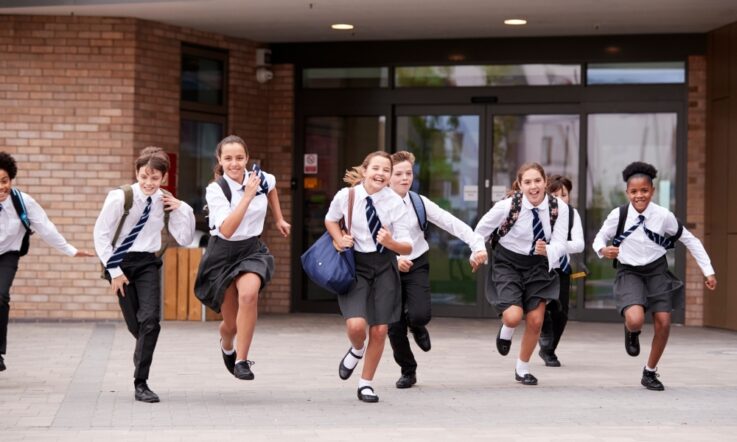At Skillset Senior College, a senior secondary school educating young people experiencing barriers to schooling, Dr Martin Hughes, Head of Research and Development at their Bathurst campus, has been investigating the efficacy of the wellbeing and mental health strategies they have in place. Here, he shares more about his research and some preliminary findings.
Three of the most prevalent mental health disorders in Australia are anxiety, depression, and substance abuse (Australian Institute of Health and Welfare, 2019). Given the amount of time it may take to identify and diagnose any one of these disorders, and the increased vulnerability of adolescents developing mental disorders during their formative years, interventions in a school setting have become more commonplace.
At Skillset Senior College – an independent school for students in Years 10-12 with campuses in Bathurst and Dubbo, New South Wales – our mission is to partner with young people who may be experiencing barriers to their education; including mental health issues, bullying, homelessness, trauma, substance use, disability and family instability, and to support them to complete their secondary schooling.
Often adolescents from disadvantaged backgrounds experience high levels of exposure to stress and trauma (Mendelson et al., 2015), which can impact emotional wellbeing, childhood development milestones, and ultimately lead to disengagement in the school environment. Therefore, improvement in wellbeing may increase student retention rates, and provide more opportunity for practitioners to work with young people at risk.
Staff at Skillset Senior College establish meaningful connections with students by prioritising relationships and engagement over a content-driven approach. We achieve this by modelling appropriate behaviours in and out of the classroom, by creating a welcoming culture, exhibition of unconditional positive regard, and by fostering a sense of belonging within the school community. This culture is created and maintained by our Head of College, Abbey Barrett.
Abbey has a background in clinical counselling and uses her experience to train, teach, and guide each member of staff through immersive professional development opportunities in trauma informed practice, co-regulation, and occupational therapy. This training not only enhances staff capacity to provide genuine mental health support to students, but offers the dual benefit of improving and maintaining the psychological wellbeing of staff. In addition to this, Abbey encourages staff to pursue personal passions both within and outside of the school.
The autonomy of staff, trusted by management as true educational professionals, has empowered the team and created a passionate workforce who all feed into and contribute to the strong, positive school culture.
Research and development at Skillset Senior College
This autonomy and encouragement by management allowed me to establish a research unit within the college soon after commencing my teaching role in 2018. Although as a school we intuitively know what we do well on a day-to-day basis, it was necessary for us to collect meaningful data to provide a strong evidence base to support the export of our practice to other schools.
In 2019, we conducted a pilot study to gather baseline data on student mental health. This pilot study served as the basis for a successful grant application to the Evidence Institute – the research branch of the Association of Independent Schools New South Wales (AISNSW), who fund School Based Research Projects (SBRP) across New South Wales. The funding allowed us to create a more sophisticated project measuring multiple variables within our student population.
For the study, we investigated the impact of three specific activities that were shown to have a positive impact on student mental health—exercise, resilience training, and occupational therapy. Students are assigned to one of the three groups for a four-week period. Each day, they take part in a 15-minute group session, followed by an hour long session once a week.
Our head teacher, Christopher Harris, leads the occupational therapy group, and said of the study: ‘Fifteen minutes a day and one dedicated hour a week for four weeks can have a significant positive change to the wellbeing of your students.
‘For me, the real benefit has been the insights with students and finding out what their perception of the world is. We discuss how their brains are trapped within their skull and the only way they can make sense of the world is through their senses. The really cool thing is that the students reflect and begin to question how they perceive the world and start to appreciate that they can influence their own way of thinking.’
Jonathan Hosking, our PDHPE and Community and Family Studies (CAFS) teacher, leads the exercise group, and said: ‘Students take part in a daily 15 minute walk around our campus and a one hour weekly walk around the Macquarie River (2.2km). With exercise, we know that increased activity has a direct link to mental health by increasing endorphins, however, one of the most positive results has been the willingness of students to verbalise challenges they are currently facing during the walks. The exercise is a distracting activity which has enabled students to open up about their own wellbeing, family life and current circumstances.’
Our Head of Wellbeing Jaye Shean leads the resilience training group and has said: ‘It has been such a privilege to walk through the process with Skillset Senior College students. They already have so much resilience as a result of the many difficulties they have had to overcome. What is incredibly rewarding though, is seeing them step into their own power and recognise the strategies available to them to shape their futures. The gratitude and trust and the way they have embraced the resilience training, has been so worthwhile and powerful.’
In order to collect meaningful data, we used pre- and post-test medical self-report questionnaires providing individual scores on anxiety, depression, and wellbeing before and after four weeks of the specific activity. We also collected saliva samples to measure cortisol levels in students, also known as the stress hormone. After gaining ethical approval, our study commenced in Term 1, 2020. Unfortunately, by the end of the term our study was suspended by the inevitable closures of schools and new limitations on human research involving bodily fluids due to COVID-19.
Preliminary findings and early impact
In our preliminary findings, we saw female students report higher levels of depression and anxiety compared to male students. Whereas, male students reported higher levels of wellbeing than female students. In a single term, there was an overall decrease of approximately 10 per cent in depression and anxiety scores in each group (exercise, resilience training, and occupational therapy).
After resuming the study in February this year, we have found similar results and aim to publish our full findings in 2022. Although we are yet to conclude our project, what this study has shown so far is, when we prioritise wellbeing everything else in our lives improve.
Aside from the advantages to students, one of the most interesting indirect benefits of the SBRP to date is the engagement of staff across the school. The project has inspired staff to consider future investigations into areas of interest such as: equine therapy, the influence of dogs on student wellbeing, and the impact of atmospheric chemistry within the classroom.
The SBRP has given Skillset Senior College a platform to showcase the incredible work we do while providing a robust evidence-base. It has also given us access to a fantastic network of like-minded schools and professionals through the Evidence Institute.
If, like Skillset Senior College, your school is interested in collecting meaningful data, you can apply for AISNSW funding online from 1 June to 30 July 2021.
References
Australian Institute of Health and Welfare (2019). Mental health services in Australia. AIHW, Canberra.
Mendelson, T., Tandon, S.D., O'Brennan, L., Leaf, P.J. and Ialongo, N.S., (2015). Brief report: Moving prevention into schools: The impact of a trauma-informed school-based intervention. Journal of Adolescence, 43, pp.142-147.



